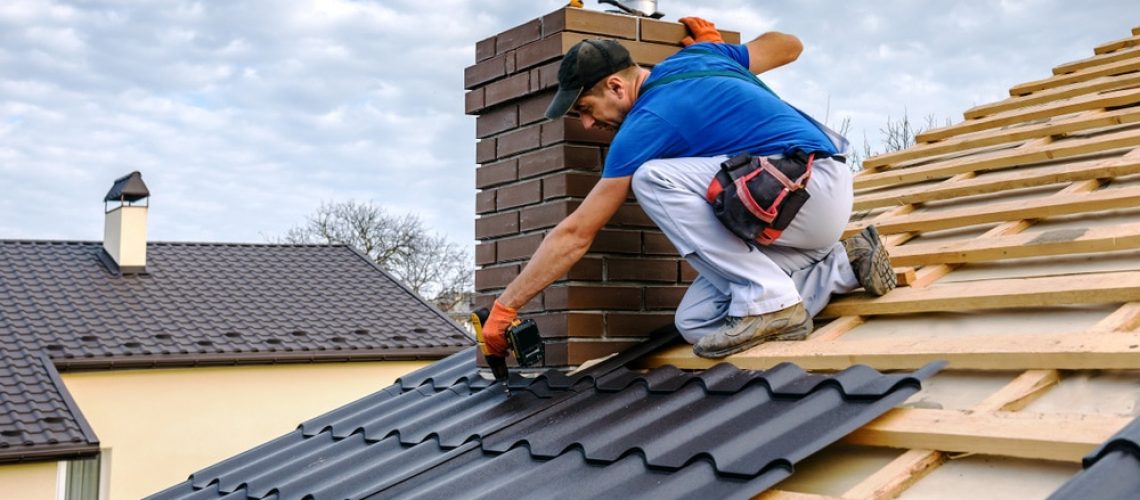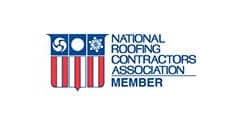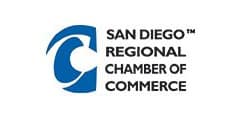Whether you need an entirely new roof or are looking for routine maintenance and repair, finding a reputable company that you can trust to complete the project with excellent workmanship is the biggest (and often hardest) part to achieving a quality roof. Knowing what questions to ask a roofer can save you time, money, and headaches once the actual job starts. Here are 20 things to ask when getting roofing quotes.
1. What is your company name and physical address?
This sounds as basic as it gets, but a credible roofing company should have a searchable company name and a physical address. If they give you a P.O. box number, ask for the actual address. A company that does not have a physical place of operations should be immediately suspect.
2. Are you licensed?
All states have different licensing requirements and procedures, but most states do require roofing contractors to be licensed. Some cities and counties have their own licensing requirements. The roofer should be licensed in the state and city where they are actually doing the work. It may be beneficial to research your state’s licensing requirements and codes. It can help to cover you in case a roofing project does go wrong. Make sure the license is up to date before hiring.
Remember that a business license is not the same as a roofing license. Business licenses are for taxes and designate that a person or group of persons can act as a company. Business licenses do not qualify a person to work as a roofer.
3. Do you have liability insurance?
General liability insurance protects any damage to your home that may occur during construction. Without liability insurance, you could be saddled with all the costs for damages incurred by your roofer. Ask to see an insurance certificate from your roofing company before any installation takes place.
4. Do you have workman’s compensation insurance?
Roofing companies should have both workman’s compensation and liability insurance, which protects the workers and the homeowner in the event that something goes wrong at the job site. Workers’ compensation specifically protects any of the roofing company’s employees who get injured.
Even with the safest protocols, accidents can happen. Homeowner’s insurance may not cover a worker’s medical bills and can leave you paying out of your own pocket. Make sure the roofing crew has their own insurance for your peace of mind.
5. Do you offer any warranties?
Some roofing companies will offer warranties that will guarantee their roofing work for a set period of time. Most roof warranties are typically good for a year, but some roofers will provide longer warranties for quality assurance. The materials are usually covered by the manufacturer. Roofer warranties cover the actual labor involved. These warranties are two distinct things, so consult your roofer to determine what exactly is covered by both and how long the warranties last.
6. Do you have any references?
It’s always a good idea to see the previous work that a roofing company has done. Ask if there are any local residential job sites available for you to see. You can also ask for references, but most homeowners don’t want their personal information shared. It can also be easy for roofing companies to cherry-pick from their “best” customers, so take these with a grain of salt. Still, it can be beneficial to call these homeowners to learn how well the roofing company did, how satisfied they were with the job, and any other questions you may have.
7. How long have you been in business?
Every business has its ups and downs, but a roofing company that is established within the local community and has stayed in business for an extended period suggests that the company is doing something right. Granted, that does not disqualify newer or younger roofing companies, especially if they are local and come with plenty of qualifying credentials, but knowing that a roofing company has been around for more than 20 years can take some of the guesswork out of the hiring process.
8. Is your business local?
Working with a local business makes things more convenient for everyone. It reduces travel time for them, and if something comes up, you can easily reach the company for any help or inquiries.
9. Do you use sub-contractors?
It is not uncommon for roofers to work with sub-contractors if they need additional labor. If so, you should ask the sub-contractors many of the same questions, especially questions involving insurance. Sub-contractors are usually covered by their own insurance that is separate from the roofing company’s insurance.
10. Will there be someone on-site I can communicate with?
Once construction starts, the roofing company should have someone on-site to answer your questions and address any concerns you might have. Make sure you know who the project manager is before the beginning of construction.
11. What is the crew’s training and experience?
A roofing company is only as good as its crew, so it’s worth knowing how much experience the crew has and where members received their training.
12. Is a building permit required?
Depending on the job and local codes, your roofing contractor may require a building permit. Permits should be obtained well beforehand. These permits usually also require proof of insurance and licenses.
13. How will you protect my landscaping during the project?
If you have a nice lawn, garden, and other landscaping features, it may be worth mentioning to a roofing company. You don’t want to come home to a new roof but an uprooted lawn. Ask the contractors what they can do to protect your landscaping and if they can provide any form of compensation for damage to your property.
14. Are there any tax credits or utility rebates I can use for my roof?
This mainly applies to larger projects, but you may be eligible for tax credits or utility rebates, which can help to bring down the overall cost of materials and labor.
15. How will you protect the project in the event of inclement weather?
Weather is not always predictable. An experienced roofing company should have plans and protocols in place should the weather suddenly turn. You don’t want to deal with roof leaks in heavy rain. Most companies will resort to tarps and other plastic coverings securely fastened to the roof.
16. When can you schedule my job?
A simple question that comes down to logistics. Some roofers may just be busier than others, so you may have to wait several weeks before they can get the job done.
17. How long will the project take?
This depends on the actual repairs or replacement required. Replacing some shingles is a short project, while a full roof replacement is a much longer ordeal depending on your home’s square footage.
18. How will you take care of refuse material?
Any sort of roof replacement will necessitate the disposal of refuse material. Ask how the company will take care of any waste. You should not be required to provide a container or deal with any of the waste once the job is complete.
19. How is payment handled?
When it’s all said and done, figure out how the roofers will handle payments. Some offer financing options. Companies may also contact your home insurance company to figure out a price that works for you. When should you pay a roofer? Never pay upfront. Most roofing companies will ask for a deposit, but don’t pay the full amount until the job is completed and workmanship is examined.
20. Can you provide a written estimate?
When dealing with roofing contractors, don’t sign a contract until you get a detailed estimate on paper. This quote should be detailed and include any potential costs that could come up during the actual construction process, like replacements for rotting plywood.
Developing a working relationship with a reputable company can ensure a smooth roofing project. Along with questions like “can you replace only half a roof”, it’s worth doing your research and preparing before you commit to signing with a roofing contractor.








